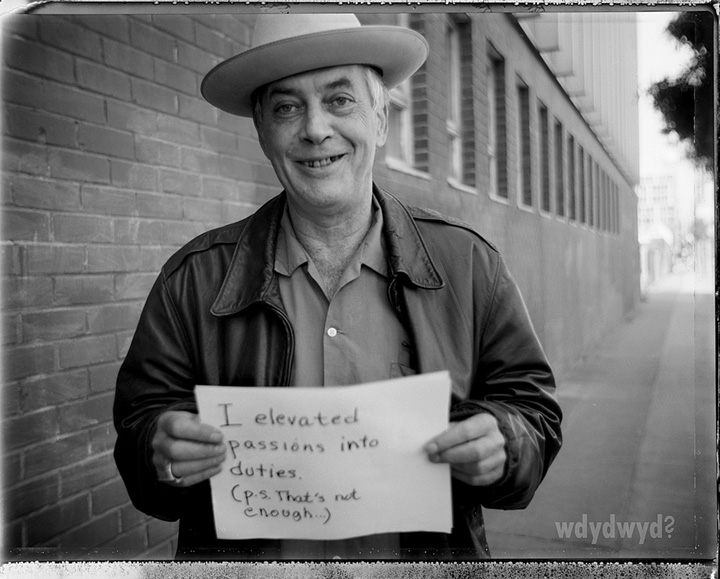San Francisco has always been a place apart, and a center of eccentric and independent thinkers. And what we started here, I don't think could have grown up anywhere else. You can create a social context in which culture can be created, but you can't directly create the culture.

"Larry Harvey" (born 1948) is the main co-founder of the Burning Man festival, along with his friend Jerry James. What started in 1986 as a summer solstice evening ritual burning of their artistic creation of an effigy of a man with a group of just a dozen people at San Francisco's Baker Beach soon became an annual event that over 4 years grew to more than 800 people. In 1990, in collaboration with the SF Cacophony Society, the event moved to Labor Day weekend in the Black Rock Desert, where it has grown precipitously from a 3 day, 80 persons "zone trip," to an 8 day festival with over 50,000 participants.
As the population grew by the mid '90's to top several thousands, the encampment started to be referred to as Black Rock City, it now has a year-round staff headquartered in San Francisco, managing an over 12 million dollar annual budget.
In 1997, six of the main organizers formed Black Rock City LLC to manage the event with Larry Harvey as the executive director, a position he still holds. He is also the president of the Black Rock Arts Foundation, a non-profit art grant foundation for promoting interactive collaborative public art installations in communities outside of Black Rock City.
More Larry Harvey on Wikipedia.We've come through. This is the revolution I'd hoped for all along.
If that isn't applying our ethos, I don't know what is. The very skills needed to survive at Burning Man are the skills needed to respond to a disaster.
We were looking for the best candidate. We have a global search here for the right candidate, and it didn't matter if they were a minority.
What they can take credit for is the increased local interest in Burning Man. If people care about Burning Man as much as Borg2 indicates, they might turn their attention away from the small, embattled group that created it.
Here I was, amid 500 tits, and I was principally paying attention to the social aspects of the event. It was neither puritanical nor prurient.
Everyone seems to be feeling that great change is in the offing, but nobody knows what it's going to be. And that raises questions about the creative class.
The irony is we went way out of the world and had to learn worldly skills to survive out there. What people who understand us discover is we have experts is every field of human endeavor.
They have hundreds of names in databases. How it came down exactly from them I don't know.
Copyright © 2024 Electric Goat Media. All Rights Reserved.